Two opposing coalitions in the Middle East define a rivalry that threatens to tear the region apart. As competition for dominance intensifies, the confrontation between Iran’s network of state and non-state actors, and a counter-front of traditional Western allies – centred on Saudi Arabia, the United Arab Emirates, and Israel – has become the region’s central battle line.

The Saudi-led coalition’s ongoing military operation against Houthi rebels in Yemen forms a key front in Riyadh’s wider battle against Iranian influence. Yet the Saudi-Iranian rivalry is just one of the many facets of Yemen’s increasingly complicated conflict. In some regards, the focus on Iran’s role in the war has distracted from many local drivers of conflict. Nonetheless, it would be a mistake to ignore or minimise Tehran’s relationship with key Yemeni factions, particularly the Houthis.
Often cast as a mere proxy for Iran, the Houthis are ultimately a product of Yemen’s political ecosystem, rooted in decades of shifting political dynamics in the country’s northern highlands. They have long maintained cordial ties with Iran, for both ideological and strategic reasons. The Houthis are grounded in anti-American and anti-imperialist ideology, increasingly embracing a position as part of the “resistance axis” that includes Iran.
The alliance also centres on self-interest. Lacking other foreign allies, the Houthis see efforts to strengthen their ties with Iran – and Iranian allies such as Hezbollah – as a means to increase their international profile and gain more substantive forms of support. For Iran, the alliance potentially provides a new sphere of influence in the Arabian Peninsula – enhancing its ability to pressure its regional adversaries and the United States, and to test the military capacity of Saudi Arabia. At times, the Houthis have demonstrated independence from Tehran – most famously, in ignoring Iranian warnings not to take Sanaa in 2014. But they have also shown an opportunistic willingness to maintain their mutually beneficial relationship with Iran.
The relationship became stronger after the group took over Sanaa. And it grew stronger still after the Saudis and the Emiratis launched their military campaign in Yemen. Western intelligence agencies report that Iranian financial and weapons aid to the Houthis has increased in recent years – to include transfers of ballistic missile technology – while elements within the groups have grown ideologically closer to the Iranians. In this way, the ongoing war demonstrates some of the difficulties facing the anti-Iran alliance comprising Saudi Arabia, Israel, and other states: forces once nominally united against the Houthis – most notably, supporters of President Abdo Rabbu Mansour Hadi and the largely UAE-backed southern secessionists – have turned against one another. In Yemen as elsewhere, local dynamics often trump regional allegiances.
As long as the Yemen conflict continues in its current form, the Houthis and Iran are likely to grow closer to each other. For Tehran, the conflict remains low-risk and high-reward; for the Houthis – who are increasingly isolated domestically, following the dramatic collapse of their alliance with former president Ali Abdullah Saleh – the Iranians are a rare ally. However, these trends deepen Saudi and Emirati concerns about Iran’s role in Yemen. They also legitimise Saudi Arabia’s argument that the Houthis are little more than an incipient Yemeni Hezbollah, which is acquiring increasingly advanced ballistic missile capability near its border and launching attacks at targets as far away as Riyadh. This has empowered hard-liners within the Yemeni government and other anti-Houthi groups in the country, preventing meaningful progress on peace talks.
An eventual political resolution of the conflict will most likely reduce Iran’s influence in Yemen. Until then, the war will continue to be an especially dangerous flashpoint. While conflicts elsewhere in the Middle East often overshadow it, the war in Yemen could draw in other key regional powers – particularly if they join Riyadh and Abu Dhabi in blaming Iran for Houthi missile attacks on Saudi Arabia.
**
Adam Baron is a visiting fellow at the European Council on Foreign Relations and co-founder of the Sanaa Center for Strategic Studies. Adam was previously based in Sanaa, Yemen, from 2011-2014 where he worked as a journalist, reporting for the Christian Science Monitor, the Economist and McClatchy newspapers.
